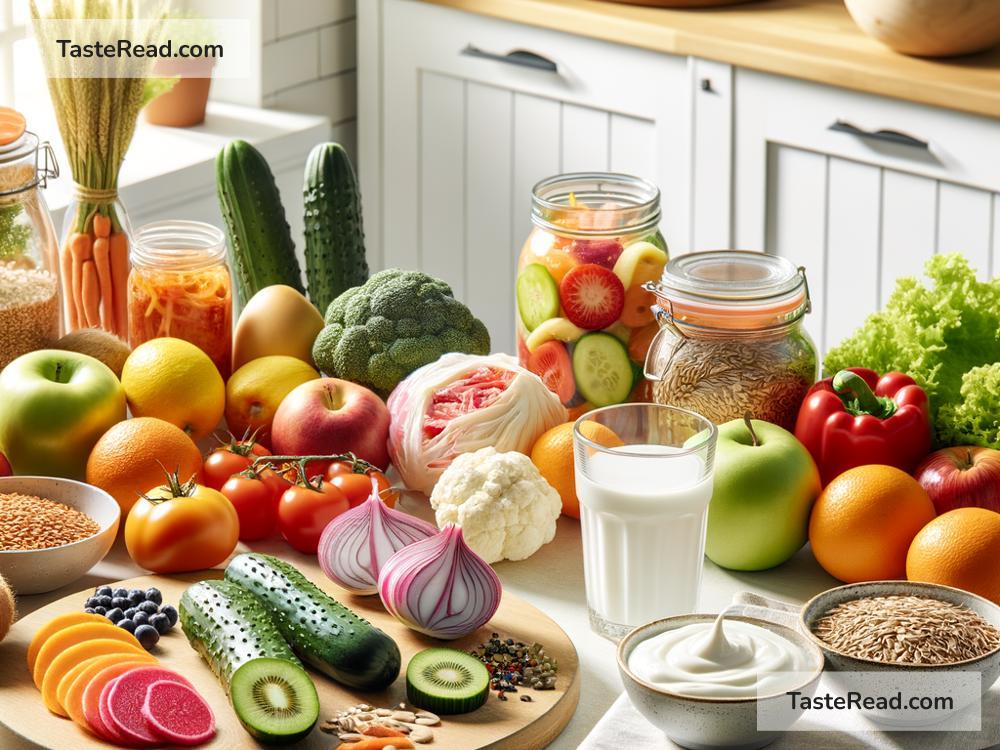The Benefits of a Balanced Diet for Digestive Health: Supporting Gut Function
Do you think much about your digestive system? Many people don’t, but it’s one of the most important parts of your body. Your digestive system breaks down food so your body can use it for energy, growth, and repair. When your digestion isn’t working well, it can lead to discomfort, tiredness, and even long-term health problems. Thankfully, one powerful way to support your gut health is by eating a balanced diet. In this article, we’ll explore why a balanced diet is key for your digestive system and how it can improve your overall health.
Why Is Digestive Health Important?
Your digestive system includes organs like your stomach, intestines, and colon. It works hard every day to process the food you eat, absorb nutrients, and get rid of waste. For all this to run smoothly, your body needs healthy foods that fuel the digestive process. If you eat too much junk food—or not enough of the right nutrients—your system can struggle to do its job. Poor digestive health may lead to issues like bloating, constipation, diarrhea, or even serious conditions like irritable bowel syndrome (IBS).
But here’s the good news: you can avoid many problems by simply eating a balanced diet. A balanced diet consists of a variety of foods that give your body everything it needs to stay strong and healthy. Think of your meals as fuel for your stomach—it works best when you give it the right mix of foods!
What Does It Mean to Eat a Balanced Diet?
Eating a balanced diet means including foods from all major food groups, such as:
-
Fruits and Vegetables: These are full of fiber, vitamins, and antioxidants. Fiber helps keep things moving in your digestive system and prevents constipation. Fruits and veggies also nourish the helpful bacteria in your gut, called your gut microbiome.
-
Whole Grains: Examples include brown rice, oats, and whole-wheat bread. Whole grains are high in fiber and nutrients that support good digestion.
-
Lean Proteins: Foods like chicken, fish, eggs, beans, and tofu provide protein that helps repair tissues in your digestive system.
-
Healthy Fats: You can find healthy fats in foods like avocado, nuts, seeds, and olive oil. These fats help your intestine absorb certain vitamins.
-
Probiotic Foods: Yogurt, kefir, sauerkraut, and kimchi contain probiotics, which are live bacteria that help your gut stay balanced and healthy.
How a Balanced Diet Supports Your Gut Function
Here are some specific ways a balanced diet helps your digestive health:
1. Boosts Your Gut Microbiome
Your gut is home to trillions of bacteria, often called the “gut microbiome.” These bacteria play an important role in digestion, immunity, and even mood. When you eat foods high in fiber, like fruits, vegetables, and whole grains, you give these bacteria the nourishment they need to thrive. Probiotic foods, like yogurt, also add beneficial bacteria to your gut. A healthy microbiome can reduce bloating, help with weight management, and protect your body from harmful germs.
2. Improves Regularity
Fiber is like a natural broom for your intestines—it helps sweep waste out of your digestive system. Eating enough fiber prevents constipation and keeps your bowel movements regular. Whole grains, beans, and leafy greens are excellent sources of fiber.
3. Reduces Inflammation
Too much processed food and sugar can cause inflammation in your gut. Inflammation makes it harder for your digestive system to work properly and can lead to diseases like IBS or Crohn’s disease. A balanced diet rich in fruits, vegetables, and healthy fats reduces inflammation and keeps your gut happy.
4. Provides Essential Nutrients
Your digestive system works hard every day, and it needs certain nutrients to stay strong. For example, vitamin D helps protect your gut lining, while magnesium helps with muscle contractions that move food through your intestines. Eating a variety of nutrient-rich foods ensures your digestive organs stay in top shape.
5. Supports Energy Levels
When your digestion is healthy, your body absorbs nutrients efficiently, giving you steady energy throughout the day. On the other hand, poor gut health can leave you feeling sluggish and tired. A balanced diet helps your digestive system break down food properly, so you can feel your best.
Simple Tips for Eating a Balanced Diet
Here are some practical ways to improve your diet and support your digestive health:
- Add a serving of fruits or veggies to every meal.
- Swap refined grains (white bread, pastries) for whole grains (brown rice, oatmeal).
- Include a source of lean protein, like chicken, fish, or beans, in your meals.
- Limit processed foods and sugary snacks, which can disrupt your digestive system.
- Drink plenty of water to help fiber move easily through your intestines.
The Bottom Line
Your digestive health affects every part of your body, from your energy levels to your immune system. Eating a balanced diet is one of the simplest and most effective ways to support good gut function. By including a variety of fruits, vegetables, whole grains, proteins, and healthy fats in your meals, you give your digestive system the tools it needs to do its job.
Remember, small changes can make a big difference over time. Start making healthier food choices today, and your gut will thank you!


